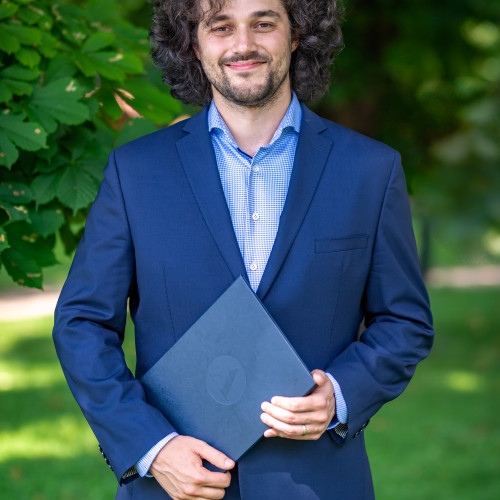Jakub Drápal, ESC Young Criminology Award Recipient

When I was little, I loved stories about explorers discovering new lands. In criminology, I am especially excited when I search for new avenues of research. (Un)fortunately, many questions still remain unanswered – or even unasked – in sentencing research. One of the unasked questions was that of how to sentence multiple conviction offenders: offenders who are being imposed a new sentence for an offence committed after they have been imposed a previous sentence, but before they have served the previous sentence. Such a situation would arise most commonly when an offender re-offends during an operational period of a suspended prison sentence. I received mixed reactions upon discussing with judges how they sentence these offenders: some judges vehemently defended a position that these offenders should be treated more harshly than single-offence defendants, while others asserted these offenders should be treated more leniently. Such mixed reactions suggest I had found a jackpot.
Surprisingly, I did not find any scholarship on this issue. As a PhD student, I was a bit hesitant to claim that nobody had studied the topic in detail: maybe I had just conducted the literature review poorly? I made peace with the claim only after understanding why the issue was not discussed. To understand why, it is necessary to go back to the 19th century when only multiple offending and repeat offending were considered. The moment when a court imposed a sentence and communicated it to the offender delineated multiple offending from repeat offending. Typically it did not cause any problems as sentences were served right after they were imposed.
By the end of the 19th century suspended prison sentences were conceived, by which a prison sentence is imposed but its execution is suspended for an operational period. Suddenly, offenders were re-offending before they had started to serve a previously imposed sentence. What to do with these offenders?
It is only natural for systems to retain the original conception unless pushed towards a change. Criminal justice systems were no different. As a result, any offence committed during an operational period of a suspended prison sentence was treated as repeat offending. Such an approach was also in line with the original conception of suspended prison sentences: the necessity to impose harsher sentences to offenders who re-offend during an operational period was even mentioned in the name of the 1880s French bill that invented the suspended prison sentence (Ancel, 1971).
A different discussion became possible only when late 20th century lawyers, criminologists, and philosophers started to properly develop the notion of censure. Should the moment distinguishing multiple from repeat offending be located during imposition of the sentence; or should the execution of a sentence also play a role? In other words: is a censure communicated via words or via hard treatment (expressed in different ways, not necessarily via imprisonment)? Censure scholarship concluded that hard treatment was important (du Bois-Pedain & Bottoms, 2019). Curiously, offenders are describing a similar thing, unaware of theoretical discussions. Prison psychologists and judges often mention that, upon asking offenders about their criminal history, they say they have never been sentenced prior to the conviction. After being confronted with being imposed suspended prison sentences, they surprisingly retort that it was just a ‘suspension’. Evidently, hard treatment matters. And for this reason, the criminal justice system needs to define a new category of offending: multiple conviction offenders.
The need to define principles for sentencing multiple conviction offenders came from the Czech Republic. It was only natural as this central European country imposes suspended prison sentences to two-thirds of all offenders and, as a result, sentencing of multiple conviction offenders is very frequent. This is evidenced by the fact that after prisoners serve their sentence, they most commonly start serving another prison sentence (release and parole are less frequent, see Drápal, 2023).
Somehow this story has a positive ending. After describing this group of offenders and the principles according to which they should be sentenced, a year later the Czech Criminal Code was amended. Judges are now directed to consider previous not-yet executed sentences so that the overall sentence would not be detrimental to the offender. Not as principled a solution as I suggested – I hoped for a more detailed provision and for a possibility to impose prison sentences below the sentencing range minimums – but tomorrow is another day.
References
Ancel, M. (1971). Suspended Sentence. Heinemann.
Drápal, J. (2023). Sentencing multiple conviction offenders. European Journal of Criminology, 20(1), 142–160. https://doi.org/10.1177/1477370821996903
du Bois-Pedain, A., & Bottoms, A. E. (Eds.). (2019). Penal Censure: Engagements Within and Beyond Desert Theory. Hart Publishing.
